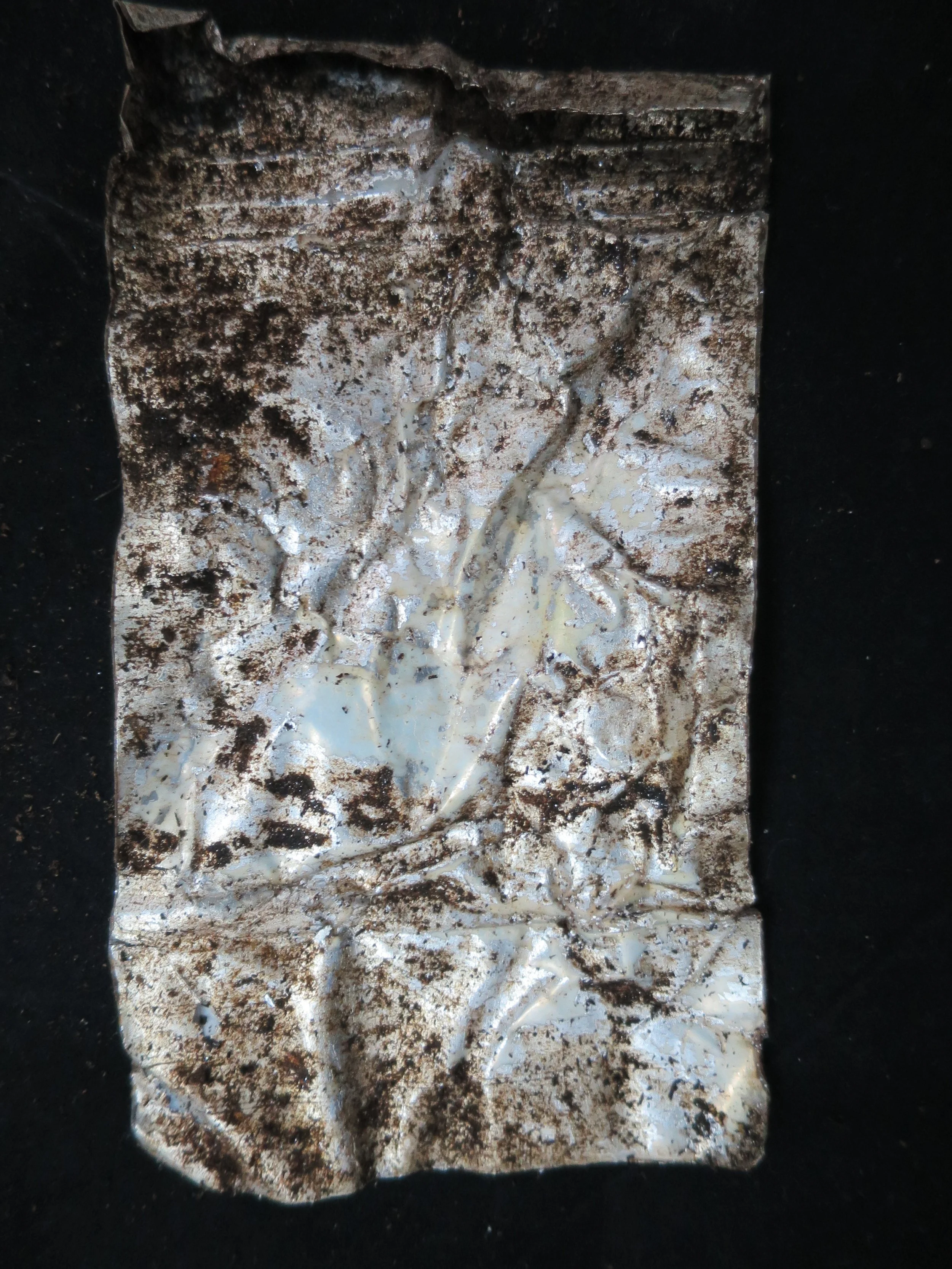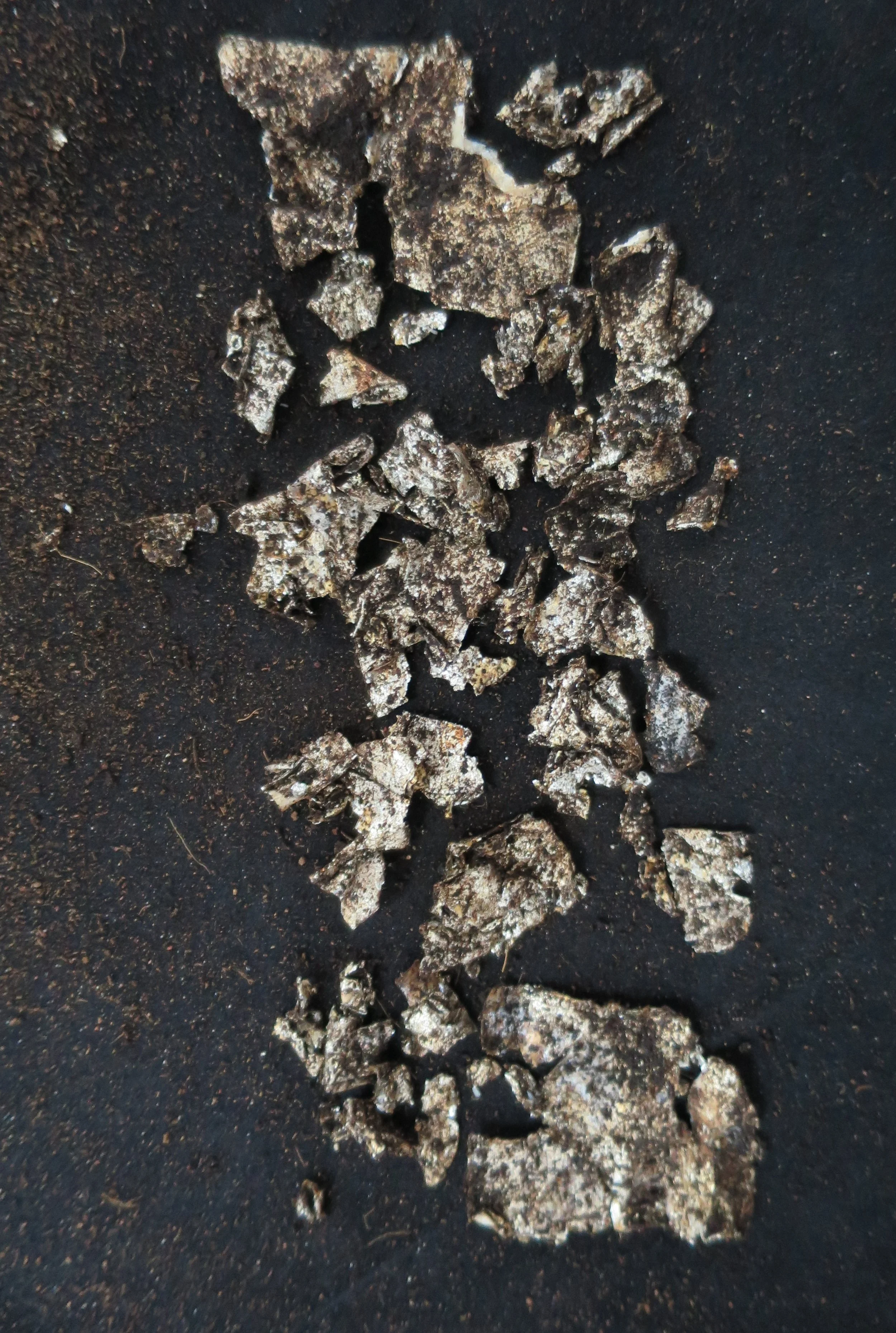Our New Compostable Packaging
Time to read 2 min
Cart
Your cart is empty
Time to read 2 min
Our new compostable packaging.
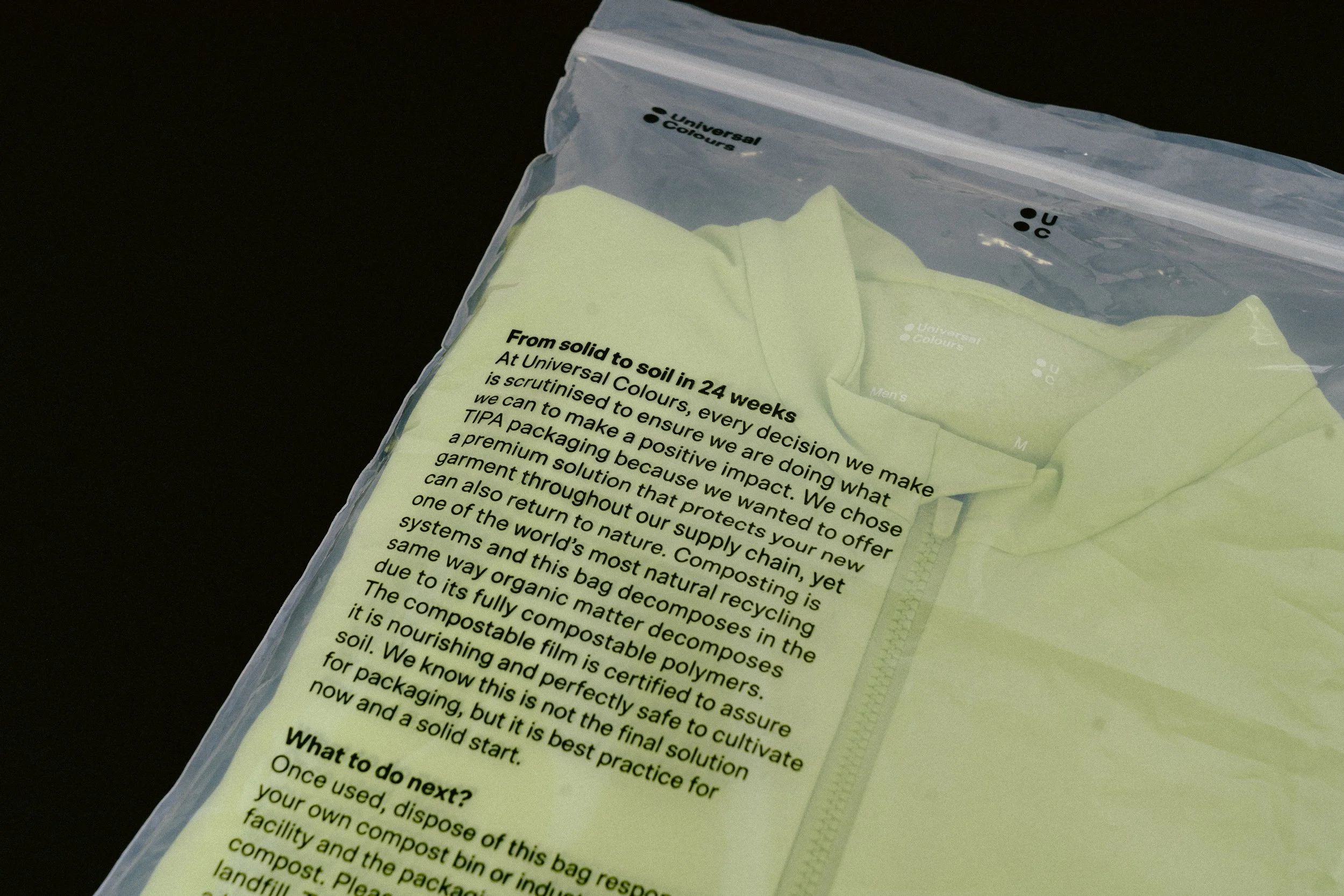
As part of our ongoing commitment to reducing our footprint, we're introducing TIPA compostable packing for all of our current and future garments. This packaging emulates the properties of traditional plastic bags, whilst being fully compostable under home and/or industrial conditions.
At TIPA, they create packaging that behaves like organic waste, allowing it to be returned to the biosphere through composting, so nature won't even notice it's there.
Founded in 2010, TIPA’s mission is to address the issues around traditional plastic packaging and to create flexible packaging that mimicks traditional plastics, without producing toxics, microplastics and other pollutants.
The result has lead them to create packaging that has the same end-of-life as organic matter while maintaining the qualities of conventional plastics that consumers and brands have come to rely on. These include durability, transparency, barrier, sealability, printability, and shelf-life.
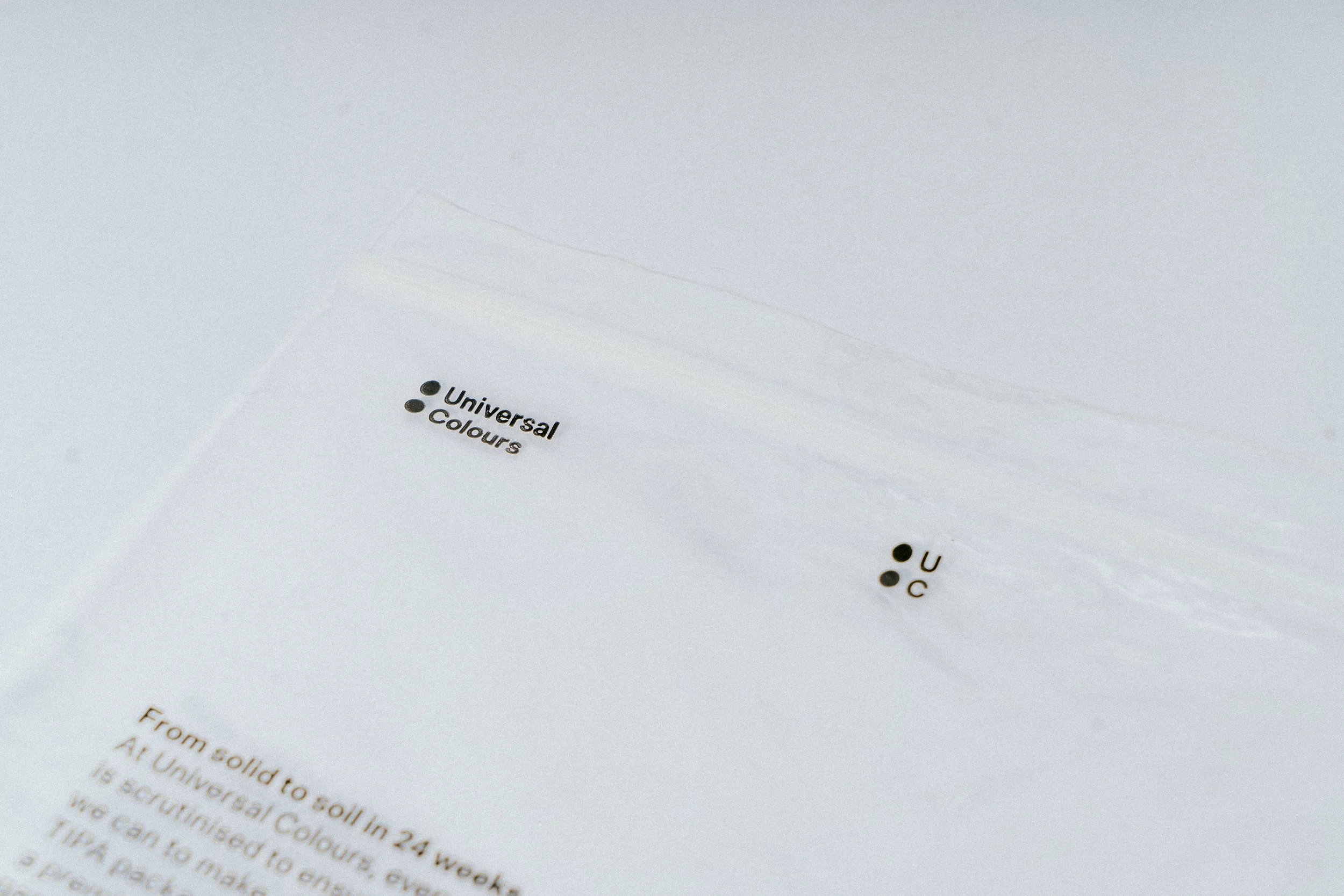
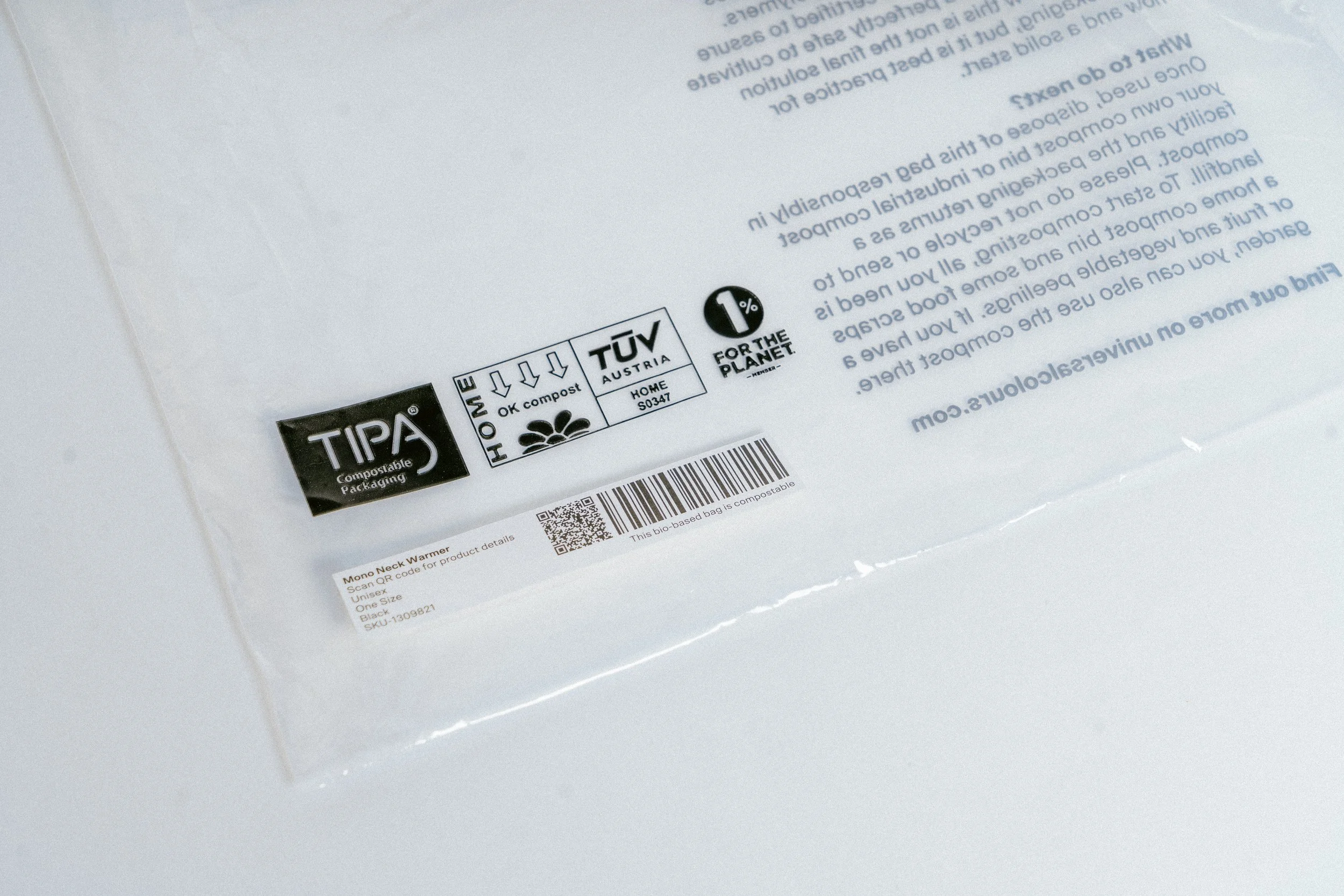
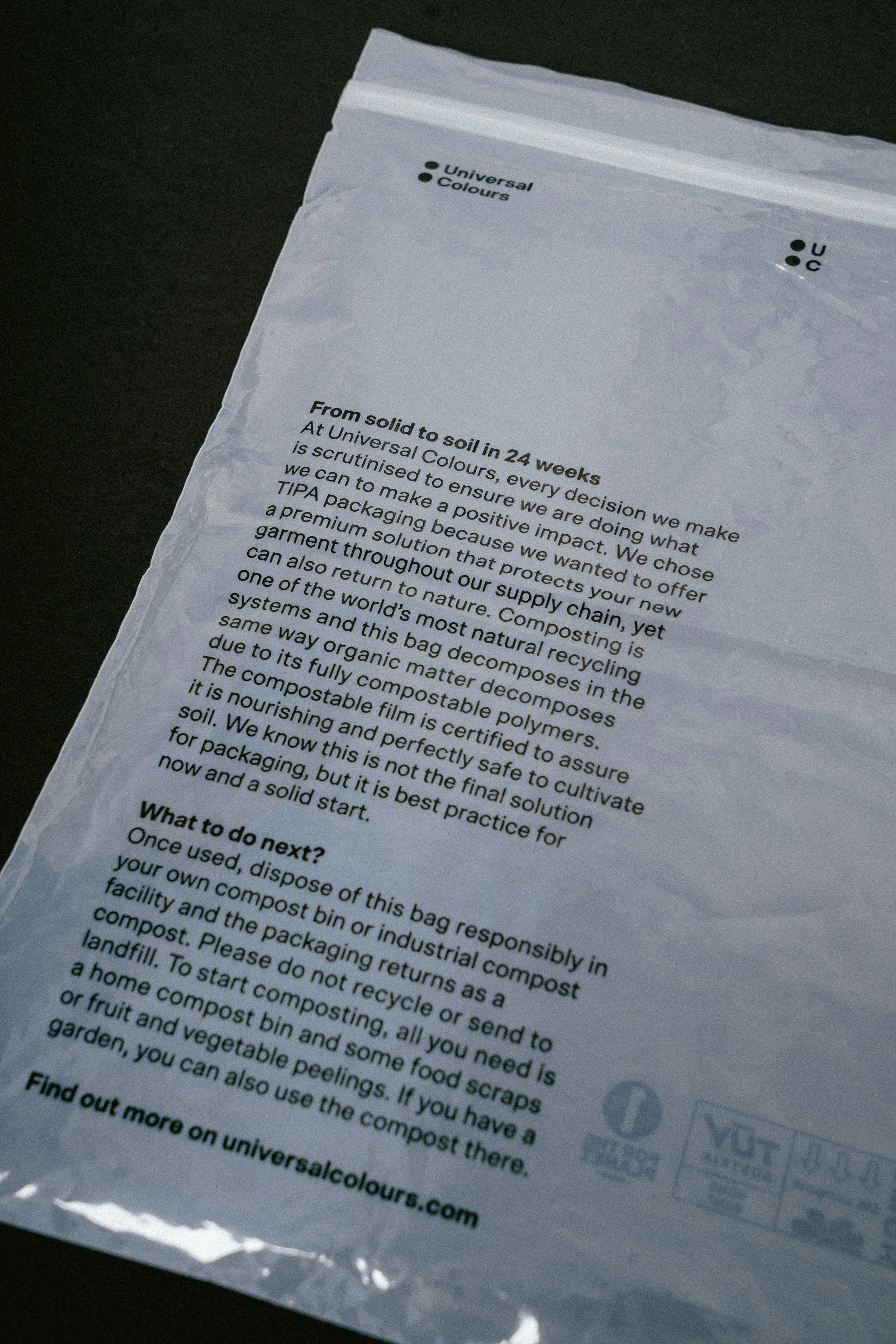
In the same way a banana protects the fruit within and can then be returned to the biosphere through composting, TIPA's films and laminates emulate the properties and functionality of conventional plastic materials, such as polyethylene and polypropylene. This is achieved by using a patent-protected blend of fully compostable polymers. The result gives the material the same feel and functionality of traditional flexible plastic.

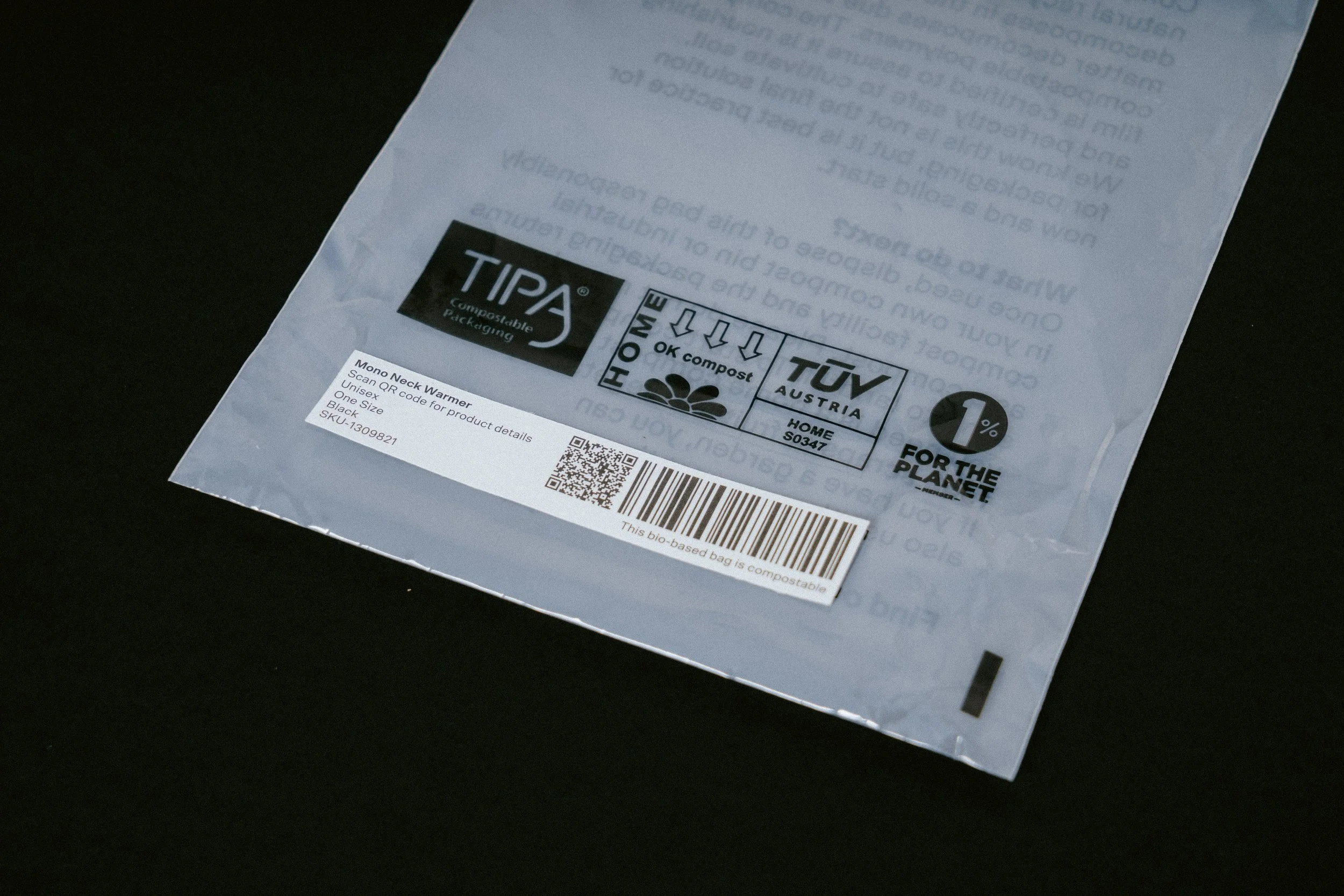
Compostable packaging addresses the challenges of plastic pollution from the design phase. TIPA's packaging offers all of the advantages of traditional plastic; moisture and oxygen barrier, shelf-life, lightweight design, and flexibility, but it's able to compost due to its built-in circular solution for its end-of-use.
The current challenges with conventional flexible plastics are that it is nearly impossible to recycle thin films and multi-layered plastic packaging, as well as not economically viable to do so. These issues have now resulted in recycling levels for flexible packaging to be around 5%, even in the most advanced markets, such as the EU. The rest of the plastic waste is then being sent to incineration, landfill or being left out in the open environment where it can then pollute our oceans, soil and water.
By using compostable packaging, we provide a circular solution. When composted, the packaging will leave no footprint once it's finished with, resulting in zero waste. Under compost conditions, it takes at most 180 days to disintegrate.
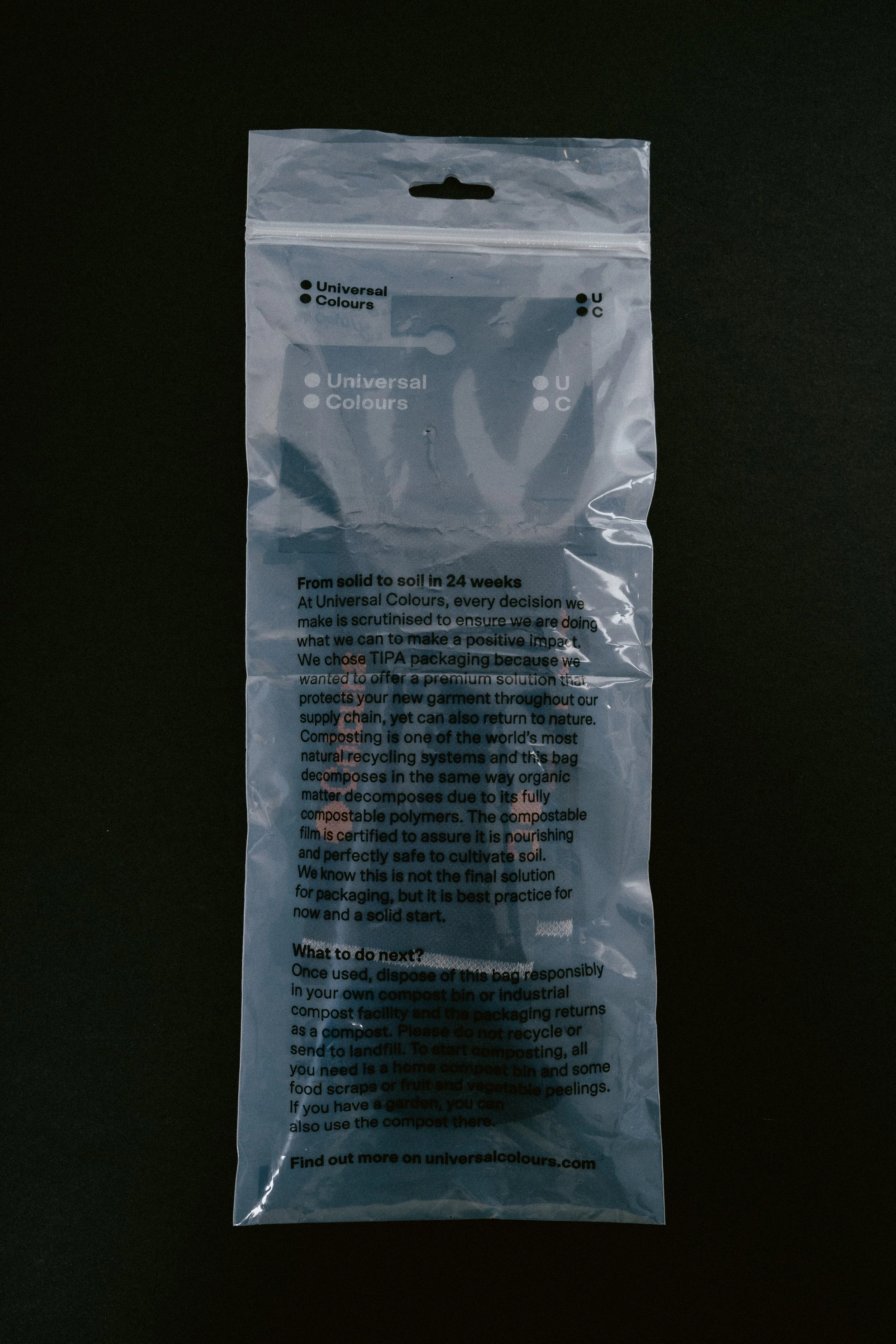
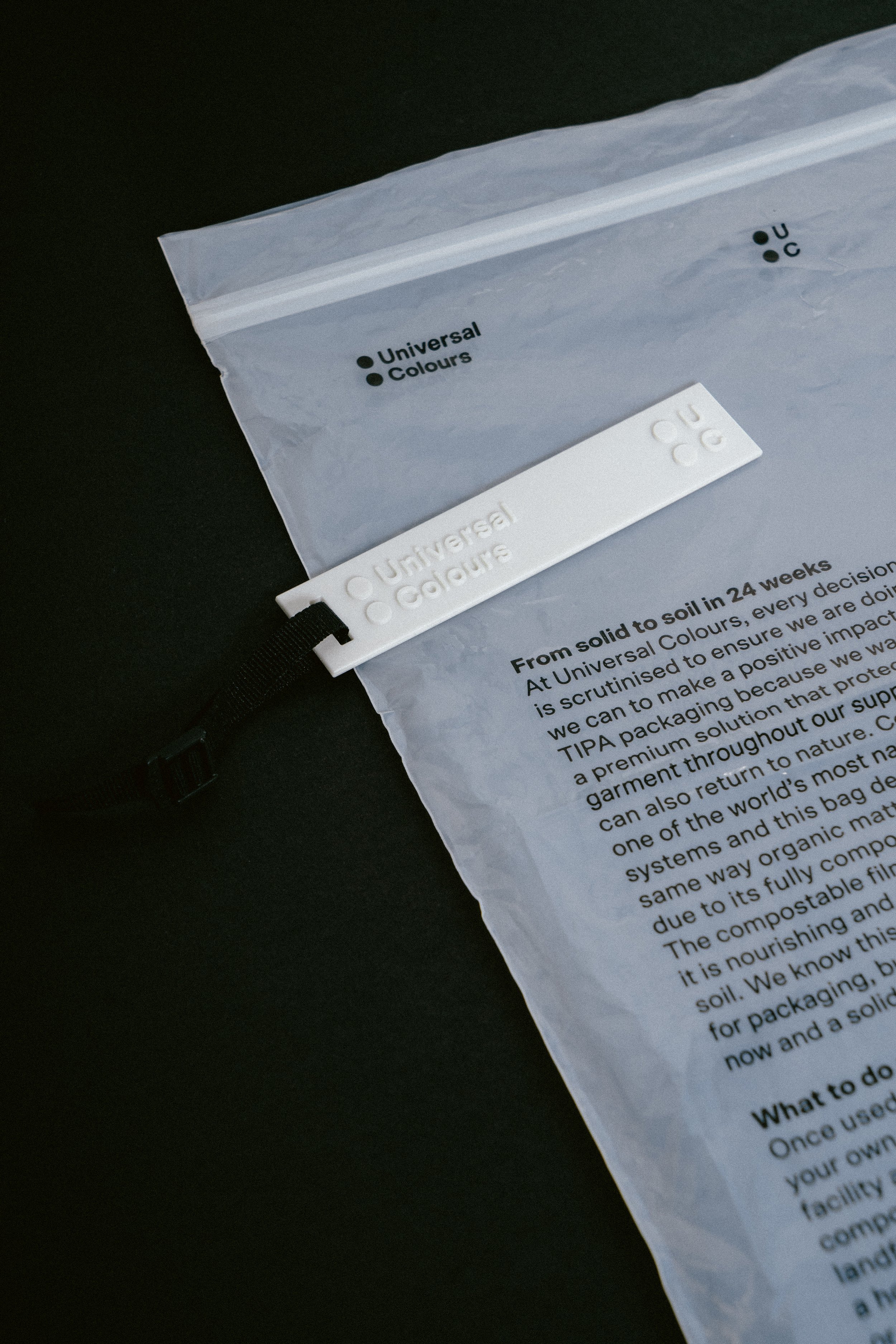
Composting at home is easy and you can get started for around £10. All you need is a home compost bin and some food scraps. If you have no outdoors space, you can use a small container/compost bin in your kitchen.
It is best to place the packaging into a food waste recycling bin, a home compost bin or an industrial compost bin, where accepted. Do not place this packaging in the recycle bin, it will contaminate plastics recycling.
